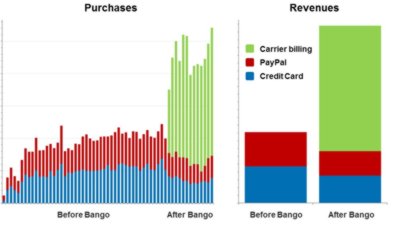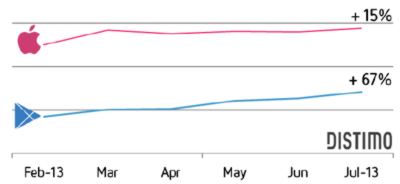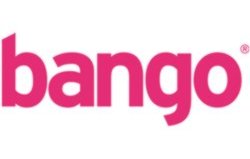| Operator Billing Has An Impact on App Revenue |
| Written by Sue Gee |
| Thursday, 15 August 2013 |
|
Bango has gone live for Mozilla's new Firefox Marketplace, which means that yet another player in the mobile app ecosystem offers operator billing, allowing its customers the choice of charging the cost of digital purchases to their phone bill. Firefox Marketplace is the first app store to adopt the Bango Payments Platform from launch. This introduces one-click operator billing, in which purchases are settled via users' pre or post-paid phone bill. For developers it means they can expect an enhanced revenue stream, particularly with respect to micropayments. The Bango blog illustrates the impact direct operator billing can have on the sales of digital goods, even in developed countries with high credit card penetration, such as the USA, UK and Australia, with this chart that shows a growth in revenue of 300% experienced by one of its partners that adopted Bango some months after launch (the bars in the Purchases histogram correspond to weeks):
The blog post also suggests that Google Play's recent "explosive" revenue growth - 67% over the six months ending July 2013 compared to only 15% for Apple in the same period - is explained by operator billing, which Google adopted in December 2012 and hasn't as yet been introduced by Apple: It is interesting to see how this explosive revenue growth aligns with Google’s current global push to add operator billing as a default payment method. It is common knowledge that credit card penetration in certain regions is very low – in these countries the ability to pay using the mobile phone bill becomes a necessity for any store. Bango has recorded massive uplift in conversion rates in countries such as Indonesia following the introduction of operator billing, often seeing increases in the range of 1000%. This argument is very convincing but in fact the Distimo figures are aggregated only over the top 18 countries so Indonesia isn't one of those included. Overall, the United States spent the most money on apps, followed by Japan and South Korea, who were the main contributors to the growth in Google Play’s revenue share.
Germany comes sixth in the league revenue generating companies and operator billing may well explain why Google Play has a greater share there than in the UK or France as the Bango blog points out that despite being one of the wealthiest countries credit card use has been low for cultural reasons. But even where credit cards are well established, introducing operator billing is likely to promote app sales and in-app purchases which are typically small and impulsive. More InformationGoogle Play’s explosive revenue growth down to operator billing? Distimo Top Global Apps July 2013 Related ArticlesRevenue From Apps For iOS and Android
To be informed about new articles on I Programmer, install the I Programmer Toolbar, subscribe to the RSS feed, follow us on, Twitter, Facebook, Google+ or Linkedin, or sign up for our weekly newsletter.
Comments
or email your comment to: comments@i-programmer.info
|
| Last Updated ( Thursday, 15 August 2013 ) |





